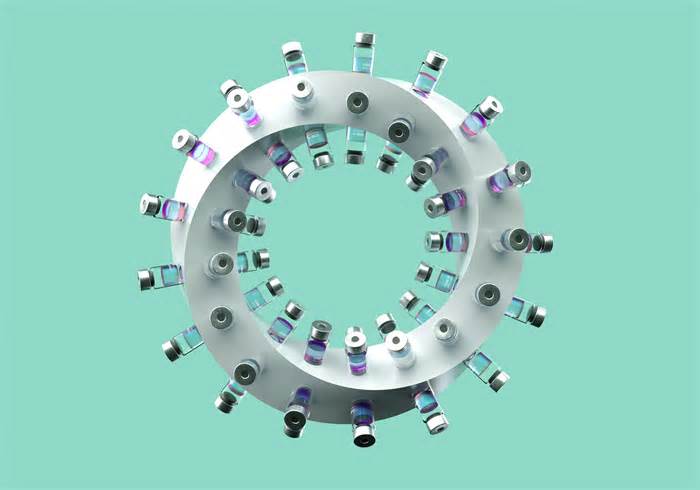The expansion of Africa’s capacity to produce mRNA vaccines has reached a new milestone with BioNTech’s opening of a facility in Kigali, Rwanda. This facility is intended to manufacture vaccines for use within the African Union.
BioNTech can produce only up to 50 million doses of the product per year with an RNA process similar to that of the Pfizer-BioNTech COVID-19 vaccine. Many variables, such as dosage and formulation, influence the site’s ability to produce mRNA products.
Following the successful validation of the Kigali facility, which serves as a flagship project, BioNTech has committed to building more African production facilities in response to the wishes of the continent and partner countries. Future sites may be smaller and suitable for generating batches for clinical trials of potential products, or they may simply be larger and supplied to handle commercial-scale production in Africa, such as the Kigali plant.
BioNTech has pledged around $150 million for the entire structure of the Kigali factory, adding production units. Once operational, the 35,000 square meters will employ approximately one hundred people.
By 2024, BioNTech expects to have completed the structure of all buildings at the Kigali site and trained local specialists. They plan to begin testing the mRNA for procedure validation in 2025.
In addition to the opening of the first production plant, the company’s modern, digitally enabled modular production unit, BioNTainer, will be put into operation. The installation of the first BioNtainer, a state-of-the-art solution for mRNA drug production, is a vital step towards building a robust vaccine ecosystem in Africa and preparing for long-term pandemics.
The BioNTainers can produce several different vaccines that are based on messenger RNA. To ensure that the BioNTainers remain among the most advanced mRNA manufacturing facilities globally, they are also engineered to undergo frequent updates.
Initially, the production facility will consist of two BioNTainer. The boxes of the first BioNTainer, recently installed in the production corridor and which will be used to manufacture mRNA vaccines, arrived in Kigali in March 2023. BioNTainer’s second unit will be used to manufacture the formulated pharmaceutical product in bulk and will be ready to be shipped at the Rwanda site in the first quarter of 2024.
Moderna announced in March this year its plans to identify an mRNA production facility in Kenya, which would be the company’s first in Africa.
This is just one of many systems BioNTech is running to help build a more potent vaccine ecosystem in Africa and ensure that others around the world have opportunities equivalent to cutting-edge medicines. Other systems include studies and development, clinical trials, and manufacturing. and education from local experts.
In addition, BioNTech is advancing the search for applicants for mRNA vaccines against infectious diseases such as HIV, tuberculosis, malaria and monkeypox, a disease that could cause a global epidemic. These vaccines will begin to be used in the newly created facilities once they evolve and are approved.
BioNTech is focusing on the prevention of infectious diseases, such as tuberculosis, malaria, and HIV, as well as diseases with the potential to cause pandemics, such as monkeypox, to contribute to the development of a long-term vaccine ecosystem in Africa. Malaria, tuberculosis, and HIV are all common in Africa, claiming over two million lives each year, with a high rate of child mortality.
BioNTech intends to provide lower-income countries with access to the four prophylactic vaccines at a non-profit price if the vaccines are successfully developed and approved by regulatory authorities.
Clinical trials of malaria vaccines are underway in the United States and tuberculosis vaccines in South Africa. BioNTech plans to start clinical trials of HIV, tuberculosis and malaria vaccines in Africa in 2024.

